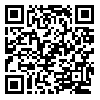Sun, Sep 14, 2025
[Archive]
Volume 8, Issue 1 (March 2012)
IJEEE 2012, 8(1): 28-36 |
Back to browse issues page
Download citation:
BibTeX | RIS | EndNote | Medlars | ProCite | Reference Manager | RefWorks
Send citation to:



BibTeX | RIS | EndNote | Medlars | ProCite | Reference Manager | RefWorks
Send citation to:
Namaki-Shoushtari O, Khaki-Sedigh A. Enhancement of Robust Tracking Performance via Switching Supervisory Adaptive Control. IJEEE 2012; 8 (1) :28-36
URL: http://ijeee.iust.ac.ir/article-1-392-en.html
URL: http://ijeee.iust.ac.ir/article-1-392-en.html
Abstract: (6658 Views)
When the process is highly uncertain, even linear minimum phase systems must sacrifice desirable feedback control benefits to avoid an excessive ‘cost of feedback’, while preserving the robust stability. In this paper, the problem of supervisory based switching Quantitative Feedback Theory (QFT) control is proposed for the control of highly uncertain plants. According to this strategy, the uncertainty region is suitably divided into smaller regions. It is assumed that a QFT controller-prefilter exits for robust stability and performance of the individual uncertain sets. The proposed control architecture is made up by these local controllers, which commute among themselves in accordance with the decision of a high level decision maker called the supervisor. The supervisor makes the decision by comparing the candidate local model behavior with the one of the plant and selects the controller corresponding to the best fitted model. A hysteresis switching logic is used to slow down switching for stability reasons. Besides, each controller is designed to be stable in the whole uncertainty domain, and as accurate in command tracking as desired in its uncertainty subset to preserve the robust stability from any failure in the switching.
Type of Study: Research Paper |
Subject:
Adaptive Control
Received: 2011/05/01 | Revised: 2014/09/30 | Accepted: 2012/02/04
Received: 2011/05/01 | Revised: 2014/09/30 | Accepted: 2012/02/04
| Rights and permissions | |
 |
This work is licensed under a Creative Commons Attribution-NonCommercial 4.0 International License. |







